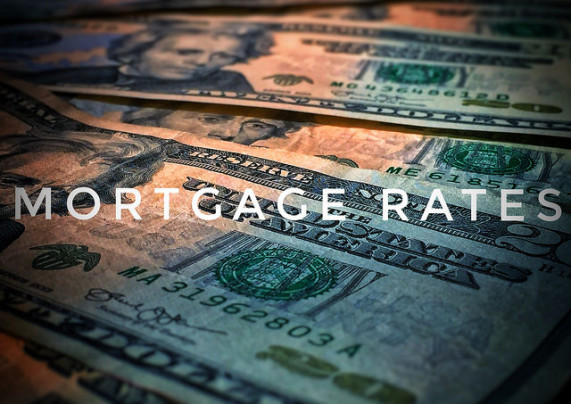Over the past few years, a pattern has emerged: The economy slows during the first quarter then begins to rev up during the second quarter. Now, according to Fannie Mae’s Economic & Strategic Research Group, we may be on pace to see the same thing this year. But what will that mean for the housing market and hopeful home buyers and sellers? Well, according to Fannie Mae’s chief economist, Doug Duncan, it means things will continue to move forward – although gradually. “Positive demographic factors should continue to reshape the housing market, as rising employment and incomes appear to be positively influencing millennial homeownership rates,” Duncan says. “However, the tight supply of homes for sale continues to act as both a boon to home prices and an impediment to affordability.” In other words, as long as the economy continues to post gains, buyers should be able to manage higher home prices due to their improving financial situation. At the same time, current homeowners hoping to sell their homes this year, will benefit from the upward pressure currently pushing home prices higher. In other words, the market’s outlook remains relatively unchanged from previous months. Low inventory is boosting home prices but the economy and job market have kept buyers in the hunt. More here.
Archive for May 2017
Mortgage Rates Relatively Flat From Last Week
According to the Mortgage Bankers Association’s Weekly Applications Survey, average mortgage rates were relatively flat last week across all loan categories, including 30-year fixed-rate loans with both conforming and jumbo balances, loans backed by the Federal Housing Administration, and 15-year fixed-rate mortgages. Despite this, however, demand for mortgage applications was down 4.1 percent from the week before. Michael Fratantoni, MBA’s chief economist, told CNBC the drop could be evidence that first-time buyers are having trouble finding homes this spring. “The survey saw relative weakness in the growth of government application volume, suggesting that many potential first-time buyers remain on the sidelines due to the lack of entry-level homes on the market,” Fratantoni said. A lack of affordable inventory in some markets has been credited with holding back home sales this spring, especially among younger home buyers. Overall, though, demand for loans to buy homes is still higher than at the same time last year, up 9 percent as of last week. The MBA’s weekly survey has been conducted since 1990 and covers 75 percent of all retail residential mortgage applications. More here.
Some Tips On Buying In A Competitive Market
It’s always good to prepare before you set out to buy a house. But that’s especially true in a tight market. If there are more buyers than homes for sale, there’s naturally also going to be competition. And where there’s competition, buyers need to be ready. So what can buyers do to make sure they don’t lose the home of their dreams or blow up their budget? Well, the first thing is to set some boundaries. You’ll need to have a firm idea of what you’re willing to spend, so that you don’t get in a bidding war and buy more house than you can comfortably afford. You’ll also need to know where you’re able to compromise. If there aren’t as many homes to choose from, chances are you’re not going to get everything you wanted in a house. Make sure that you’re focused on things that can’t be remedied later. For example, if you don’t like the kitchen cabinets, they can change but you won’t be able to add more outdoor space, if the yard is small. Buyers in competitive markets should also expect to act fast. You won’t have the luxury of thinking things over once you’ve found a good house. Be prepared to make an offer quickly, as there will likely be other buyers interested in the same property. For this reason, it’s also good to bid competitively. You may want to see if you can get a lower offer accepted but, if you’re trying to beat out other buyers, it’s a better idea to put in an attractive offer than to try and steal a deal. Generally, the more focused and prepared you are, the better your chances will be for successfully navigating a tight market. More here.
Builders See Increased Interest In New Homes
Among the many barometers of housing-market health, one of the more significant indicators is new home construction. Especially in areas where there are more buyers than homes for sale, the number of new homes being built can make a difference in how quickly prices rise and how many choices buyers have to choose from. One way to gauge how well the new home market is doing is to look at the National Association of Home Builders’ Housing Market Index. The Index – which measures builder confidence on a scale where any number above 50 indicates more builders view conditions as good than poor – is a monthly look at how builders feel about current and upcoming market conditions. According to the latest results, builder confidence has now risen to its second highest level since the housing crash, hitting 70 in May. Robert Dietz, NAHB’s chief economist, says there is growing confidence in the market for new homes. “The HMI measure of future sales conditions reached its highest level since June 2005, a sign of growing consumer confidence in the new home market,” Dietz said. “Especially as existing home inventory remains tight, we can expect increased demand for new construction moving forward.” More here.
A Few Benefits Of Owning A Home In Retirement
In recent years, there’s been an increasing number of older Americans who rent rather than own their own home. But is renting really a better choice for retirees looking to reduce costs and obligations? Well, not necessarily. While it’s true that homeownership brings with it ongoing expenses like routine maintenance and property taxes that continue even after you’ve paid off your mortgage, renting can’t offer some of the benefits that homeownership alone provides. For example, equity. Once you’ve built up equity in your home, you can take out a line of credit and borrow money from your home’s value. Obviously, this can be a good option for older homeowners on a fixed income. Also, provided you have a fixed-rate mortgage, your house payment isn’t subject to the ups-and-downs of the market the way rent can be. As a renter, you’re at the mercy of your landlord. After all, they own the house or building you’re living in and can set the price to their liking. Like anything, there are pros and cons to owning a home during retirement. However, homeownership provides a valuable asset that can be advantageous for retired homeowners in a position to benefit from it. More here.
Number Of Affordable Homes For Sale Rises
Affordability is the number one concern of prospective home buyers. Sure, there are a lot of things on a buyer’s mind when they begin looking for a home to purchase but things like the number of bedrooms in a house or the size of the kitchen don’t really matter if you can’t afford to buy it. Well, according to new numbers from the National Association of Home Builders, during the first quarter of this year, the number of affordable homes available to buy rose from the end of last year. Specifically, 60.3 percent of new and existing homes sold were within the reach of a family earning the median U.S. income of $68,800. Robert Dietz, NAHB’s chief economist, said there are a couple of reasons for the improvement. “Ongoing job growth continues to fuel demand for housing, while wage growth is helping to offset the effects of rising mortgage rates and keeping home prices affordable,” Dietz said. Home prices, obviously, are a big part of this equation. And, though they’ve been on the rise for some time now, according to the report, they fell during the first quarter of 2017. In fact, the national median home price was $245,000, which is down from $250,000 at the end of last year. More here.
Survey Finds Increasing Demand For Mortgage Loans
According to the Mortgage Bankers Association’s Weekly Applications Survey, demand for home purchase loans was at its highest level since October 2015 last week. The increase was credited to Americans feeling better about their job security and financial situation. “Continuing strength in the job market and improving consumer confidence drove overall purchase applications to increase last week,” Joel Kan, an MBA economist, told CNBC. “The index for purchase applications reached its highest level since the beginning of October 2015, which was the week prior to the implementation of the federal government’s ‘know before you owe’ rule.” Overall, demand for applications for loans to buy homes rose 2 percent from the week before and are now 6 percent higher than at the same time one year ago. Also, in the report, average mortgage rates were up and down last week, with rates flat for 30-year fixed-rate loans with conforming loan balances, up for jumbo loans and those backed by the Federal Housing Administration, and down for 15-year fixed-rate loans. The MBA’s weekly survey has been conducted since 1990 and covers 75 percent of all retail residential mortgage applications. More here.







